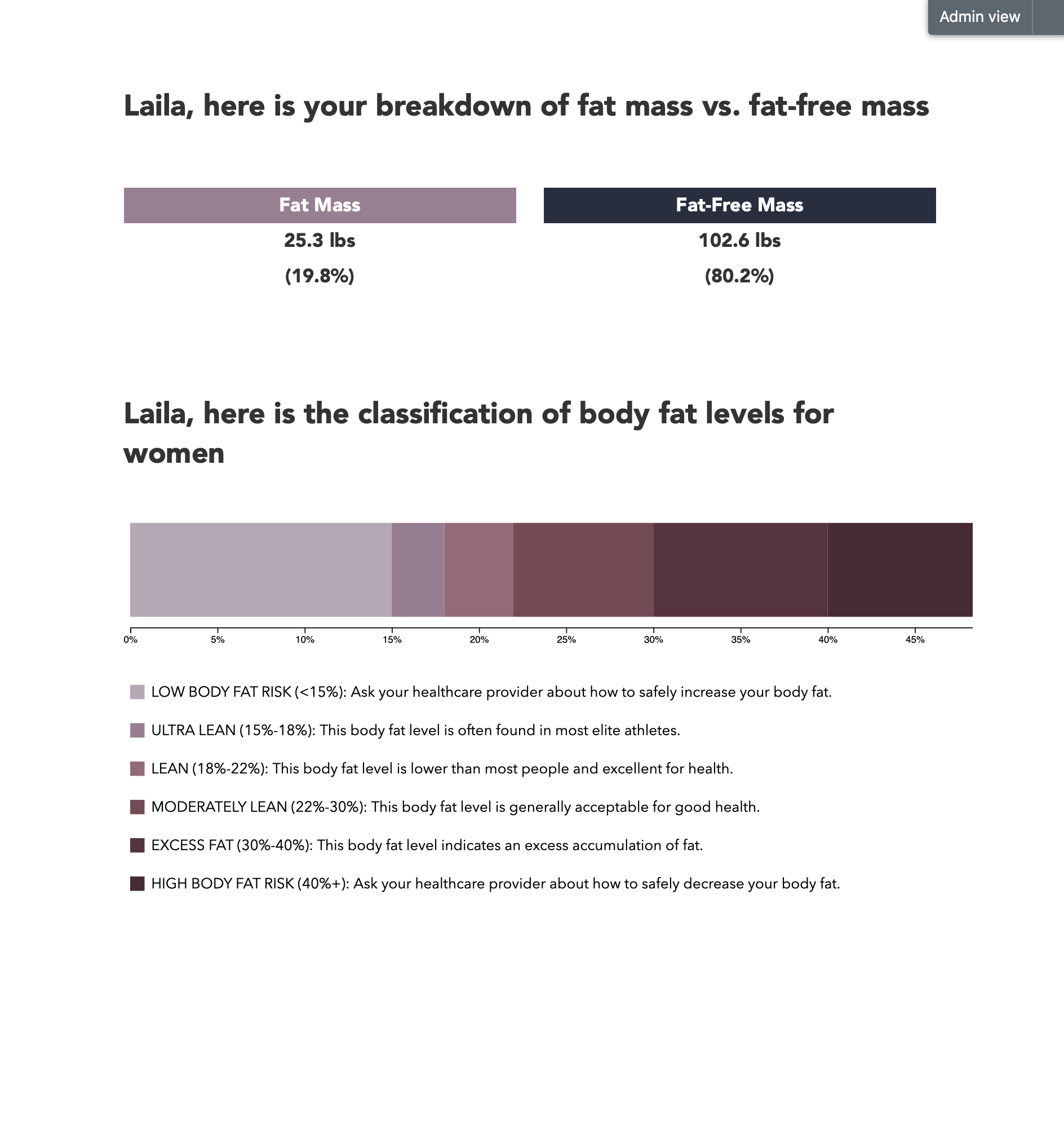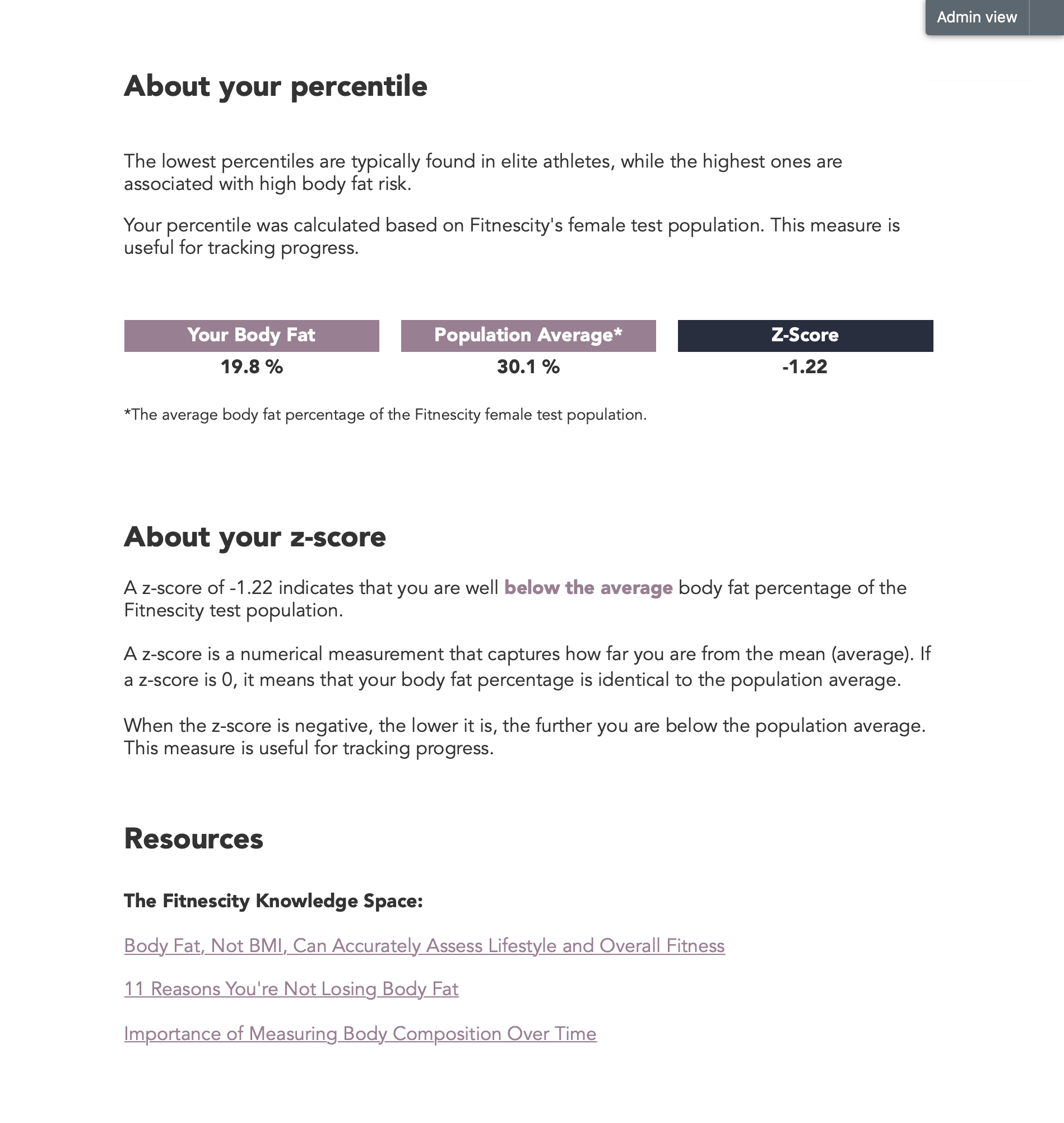Why I Measure Body Composition
Defined simply, your body composition is the total amount of fat, muscle, bone, and water in your body.
These numbers are important for tracking weight, and decreasing long-term health risks.
The Importance of Monitoring Body Composition (Instead of Weight or BMI ) Over Time
For more than a century, the Body Mass Index (BMI) has been universally relied upon as a measure of health and wellness. Invented nearly 200 years ago by Belgian scholar Adolphe Quetelet, BMI—calculated by dividing your weight by your height squared—is an outdated, limited metric with critical flaws. While perhaps slightly more useful than looking at scale weight (another flawed measure), BMI does not distinguish between excess fat, muscle, or bone mass, nor does it provide any indication of the distribution of fat within the body.
When it comes to assessing the impact of your fitness, nutritional, or lifestyle changes, there are other, more valuable indicators of progress—first and foremost of which is your body composition. Introduced as a concept in the early 20th century, body composition has been embraced in the last few decades by medical science as one of our most effective measures of body fat and overall health.
Defined simply, your body composition is the total amount of fat, muscle, bone, and water in your body. Body composition analysis goes beyond your weight and the traditional body mass index (BMI) to reveal your body’s proportions of fat mass and lean mass. Fat mass refers to all the different fat in your body, while lean mass refers to your muscles, bones, ligaments, tendons, internal organs—essentially everything in your body that isn’t fat.
How I Use my results
I try to focus on losing body fat when losing weight. Losing body fat while increasing fat-free mass is challenging, but attainable. Here’s what I do (besides physical activity):
For losing weight, I only subtract about 10% (or 15%) from my Total Energy Expenditure (see previous post about Metabolic Testing, and how I measure the number of calories I need). Since my Total Energy Expenditure is 2258 Kcal/day, I reduce my intake by no more than 250-350 Kcal/day. I find anything more than that unsustainable in the long term.
For losing body fat while increasing lean mass, I subtract the 10-15% and I try to maintain my protein intake at 1g of protein per lbs of fat-free mass. So I aim to reach about 100g of protein per day.



